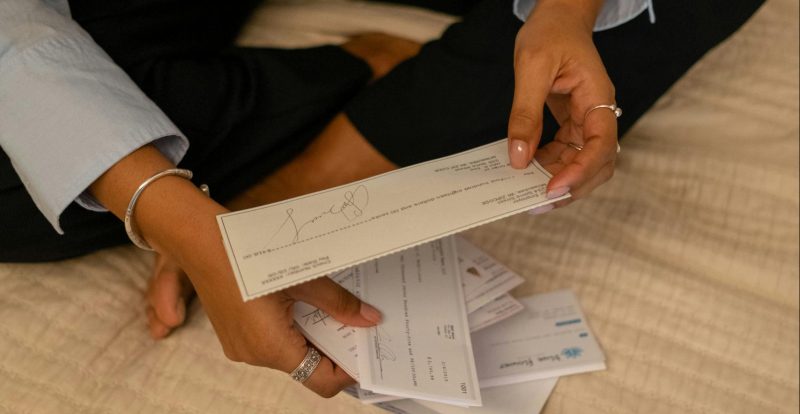If you write a cheque but you don’t have enough funds in your account to cover the cheque amount, this creates a ‘bounced cheque’ (meaning it cannot be paid into the recipient’s account).
If You Write a Cheque that Bounces
If you write a cheque that bounces, your bank may charge you a non-sufficient funds fee or overdraft fee. The amount you’re charged will depend on your bank, and might include a fee for the returned cheque and also possibly an overdraft fee, if the attempted payment would have made your bank balance fall below zero.
If you were writing a cheque to a company, that company may also charge you a fee themselves in the form of a late fee, if the bounced cheque means your payment to them is now overdue.
If You Receive a Cheque that Bounces
If you try to cash a cheque and the bank stamps it with ‘refer to drawer’, this means there is an issue with the cheque, it remains unpaid, and you will need to ask for either a different form of payment or a new cheque from whoever gave it to you.
This means there will be a delay in you getting the money you are owed. Therefore, if you sell goods or services, it’s usually better to use instant payment methods such as a bank transfer, to get the money you are owed. If you let someone pay you by cheque, there is always a risk that the cheque you are given will bounce.
Why Cheques Can be Dishonoured
There are a number of reasons why a cheque may be unpaid. These include:
- Insufficient funds – where the person writing the cheque (the issuer) doesn’t have enough money in their account to cover the cheque amount
- The issuer’s account has been closed or moved since the cheque was written
- The cheque has been dated for a future date, meaning it cannot be cashed before this
- Stop payment orders – this can be requested by the issuer if they want to stop the money being deposited
- There is a mismatch between the signature on the cheque and the signature on file with the bank
- The cheque was not written properly – common errors include misspelling the recipient’s name or not putting the same figure in the amount box and amount line
- Too much time has passed – cheques are generally considered valid for six months from the date it was written
- It is fraudulent – some cheques may have been altered or forged, e.g, it may have been stolen from the account owner with their signature forged, the amount may have been altered, or the payee’s name may have been changed
- The name on the cheque doesn’t match the account name
- Bad condition of the cheque – where it cannot be read clearly
